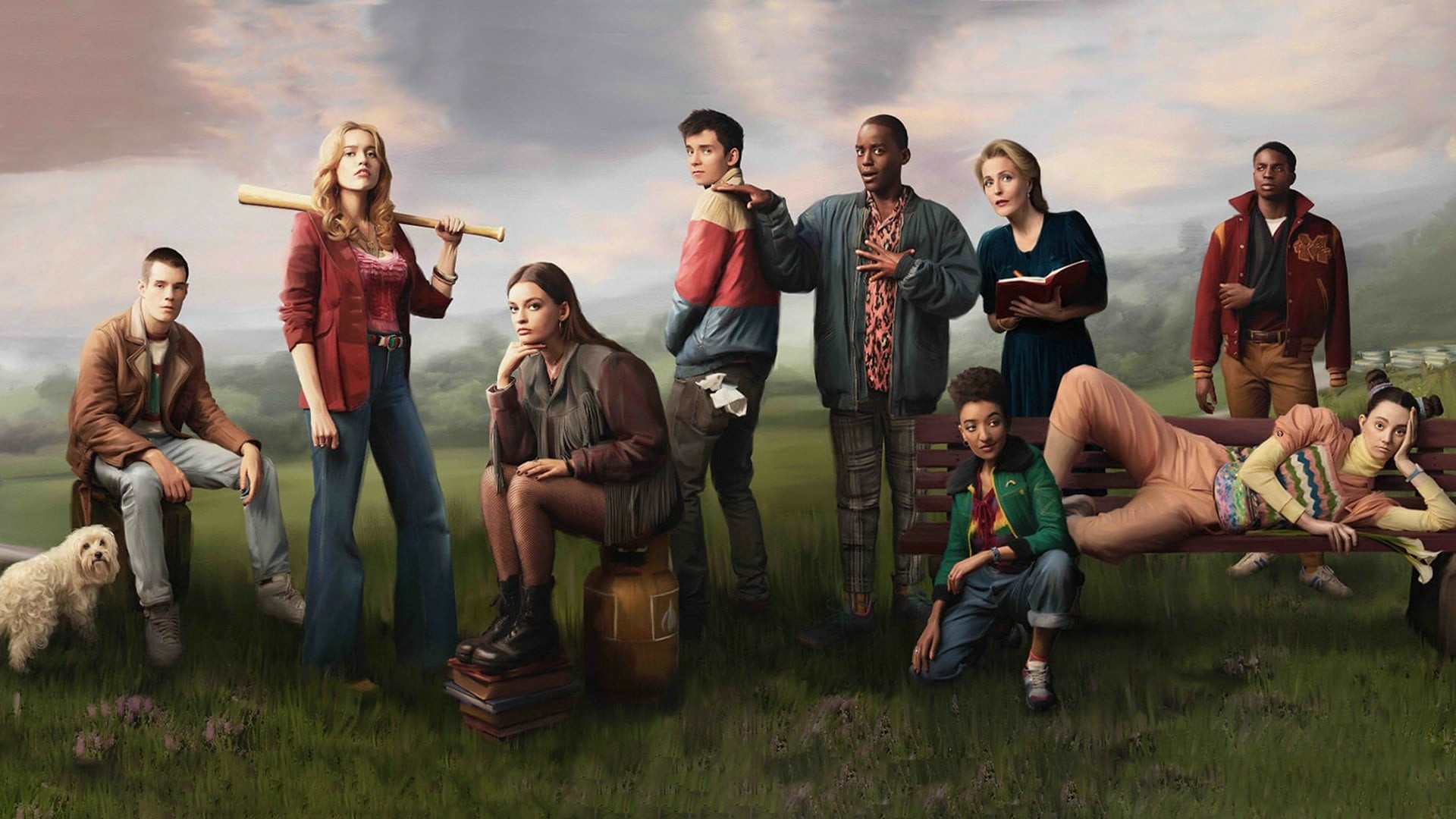
Adrian Wootton, British Film Commission and Film London’s CEO, is currently leading the UK’s Inward Investment Recovery Group, which coordinates with producers, studios, streamers, unions and other industry bodies as to how work can be safely resumed once the pandemic restrictions are eased. ‘Everything is on the table’, the industry vet said regarding a manual that is currently being drafted to help kick-start production post-lockdown.
The working group, focused more on high-end film and TV drama, is one of more units set up by the BFI to handle the fallout from the COVID-19 crisis. There are also groups working on exhibition and distribution (led by the CEA and FDA), domestic broadcasters (led by John McVay, PACT chief executive), and independent film (helmed by Ben Roberts, BFI’s CEO).
 ‘KILLING EVE’ (2018), ©BBC AMERICA
‘KILLING EVE’ (2018), ©BBC AMERICA
The Inward Investment Group, which has its own legal and VFX/post-production subdivisions, has partnered with the BFI on getting British cameras rolling once more. Their effort reaches all the way to the U.S. studios, Netflix and Amazon included among them, and key UK hubs like Pinewood and Warner Bros. Leavesden.
‘Our intention is to produce a robust code of practice and protocols, covering best practice on set, insurance, risk, liability, medical advice, travel and more. The manual will help us build our argument to government that we have a recovery plan and can get back to work’, Mr Wootton explained.
One cannot argue how important this movement is, since there are billions of dollars at stake. Last year alone, the UK’s production spend jumped to $4.7 billion (£3.6 billion), a 16% increase from 2018. Hit shows such as ‘The Crown’ (2016), ‘His Dark Materials’ (2019), ‘Killing Eve’ (2018), along with films like ‘No Time to Die’ (2020) and ‘Venom: Let There Be Carnage’ (2021) have helped supercharge the industry.
Netflix signed a deal to turn Shepperton into its UK production hub, while Disney forged a similar deal for Pinewood. Content created at both plus other UK hubs dominated the box office and online streaming, as well. Unfortunately, this year, the numbers will see a dramatic drop. Production has stopped across the country: ‘The Batman’ (2021), ‘The Little Mermaid’, ‘Fantastic Beasts 3’ (2021), ‘The Witcher’ (2019) and ‘Sex Education’ (2019) are just some of the impacted projects, whilst cinemas are all closed.
Mr Wootton hopes that consultation for the post-lockdown guidelines will be completed in a few weeks. Once they’re drawn up, they will be vetted by British health authorities, aiming to resume production within months. While this is hopeful indeed, the government has yet to announce any exit strategies regarding the pandemic restrictions. ‘We’d love to think that shooting might start again in mid-summer but that is completely out of our hands. That is up to the government’s lockdown policies. I want to get us to a position to be able to make the request. The government is listening. They are asking for recovery plans’, he said.
Asia and Scandinavia have recently resumed production on their film and TV projects. Based on this, Mr Wootton went on to add that they’re ‘looking at every example [they] can find of where people are developing protocols. Whether it’s the U.S., Scandinavia, Australia or the domestic UK broadcasters who are working on news and current affairs programs. Work is happening on a daily basis’.
 ‘SEX EDUCATION’ (2019), ©ELEVEN/NETFLIX
‘SEX EDUCATION’ (2019), ©ELEVEN/NETFLIX
In conversation with Deadline and when asked about what the manual would cover when it comes to on-set practice, Wootton said it would include ‘contact, cleansing, volume of people on and off set, protective equipment, travel’. It will likely be available to download online once it’s ready, he added. Regarding the notion that studios might adopt their own measures, he said: ‘I’m sure each company will want to make amendments. But the studios are integral to our group. We are engaging everyone, and we are hoping to have one guide that will work across the industry’.
Ted Sarandos of Netflix said last week: ‘We’re currently in production in Iceland and in Korea, and we’re taking some of those key learnings about how we run those productions today and applying that to our plans to start our productions around the world’.
For British producers and studios, however, it would likely take longer for things to return to how they were—if that’s even a possibility, anymore. ‘There are going to have to be modifications to the way film and TV shows are made’, Mr Wootton said. ‘There will be differences. It won’t just go back to normal in a few months. The government has said that social distancing will likely be in place until the end of the year. Producers we’ve spoken to are very aware of this’.
With all this in mind, he is also optimistic about the UK’s ability to recover. ‘We’ve got a lot of work to do. Everyone is relishing it because they want to get back to work. The UK was in a fantastic position before COVID-19. The demand for content on the streamers is going through the roof. My medium-term view is that the demand is going to be even greater for UK talent, infrastructure and content, but we’ve got to get back to work. That’s our fixation now’.
‘We can help with the national recovery’, Mr Wootton continued. ‘We can employ a lot of people very quickly and generate income quickly. After 2008, the creative industry bounced back quickly and helped the economy. The creative economy grew at 9 percent last year compared to 3 percent for the economy as a whole. We helped keep the UK in the black. Our argument to government is that if you can help us get back to work, we can help UK PLC.’
Jules R. Simion
Jules is a writer, screenwriter, and lover of all things cinematic. She has spent most of her adult life crafting stories and watching films, both feature-length and shorts. Jules enjoys peeling away at the layers of each production, from screenplay to post-production, in order to reveal what truly makes the story work.
An Interview with Anna Drubich
Anna Drubich is a Russian-born composer of both concert and film music, and has studied across…
A Conversation with Adam Janota Bzowski
Adam Janota Bzowski is a London-based composer and sound designer who has been working in film and…
Interview: Rebekka Karijord on the Process of Scoring Songs of Earth
Songs of Earth is Margreth Olin’s critically acclaimed nature documentary which is both an intimate…
Don't miss out
Cinematic stories delivered straight to your inbox.
Ridiculously Effective PR & Marketing
Wolkh is a full-service creative agency specialising in PR, Marketing and Branding for Film, TV, Interactive Entertainment and Performing Arts.


